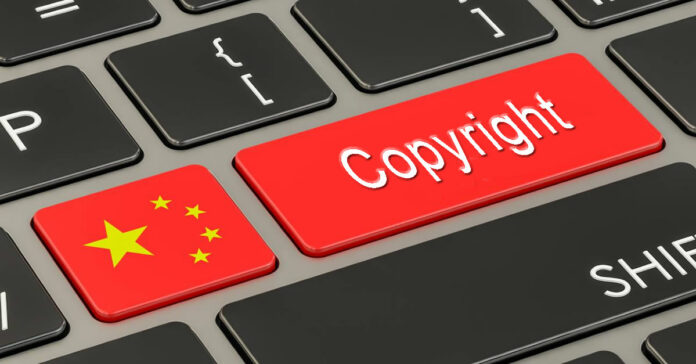IP Key China is a long-standing project directed by the European Commission, implemented and co-funded by the European Union Intellectual Property Office (EUIPO). It has provided substantial support to intellectual property (IP) cooperation and political dialogue between the EU and China to build a level playing field for EU rightsholders.
Europe exports technology and know-how, but if unprotected, EU businesses can fall victim of infringements. Intellectual property right (IPR) and Copyright protection and enforcement is a major challenge for EU businesses wishing to expand in new markets.
In 2021, with exports amounting to € 61 million, Malta traded mainly machinery and transport equipment – mainly electrical machinery and appliances – worth € 35 million (58 % of exports to China), chemicals and related products – mainly plastics in non-primary forms worth € 19 million (31 % of exports to China), and manufactured goods – mainly rubber manufactures – for € 4 million (8 % of exports to China).
1.6 million European Union Trade Mark (EUTM) registrations, containing more that 4.4 million associated classes of goods and services, were in force on 1 January 2020, with an average annual growth rate of 5.6 % (2010-2019). Most EUTM filings continued to originate from within the EU, which had an average share of 68.3 % of total filings. Germany led the way as the top EU and global filing country, followed by other large EU economies such as Italy, Spain and France. Information about Malta can be found here ([1]).
([1]) EUIPO Statistics for European Union Trade Marks 1996-01 to 2022-06 Evolution
EUIPO Statistics for Community Designs 2003-01 to 2022-06 Evolution.
Achievements
Over the past 5 years, the work of IP Key China aimed at facilitating market access to EU firms, businesses and innovators by cooperating with Chinese authorities, businesses associations and other public and private stakeholders. This contribution was carried out by increasing market understanding and improving the implementation of IP legislation and IP enforcement systems in China.
The sound assessments of Chinese legislation provided by IP Key China shed light on the major differences with equivalent IP legislation in the EU. The analysis covered a wide range of aspects such as the response to counterfeiting and piracy, procedures for the treatment of IP disputes, general IP enforcement and insights that were provided to European businesses.
In addition, the project was involved in furthering cooperation with China following the signature of the EU-China bilateral agreement to protect 100 European geographical indications in China and 100 Chinese geographical indications in the EU.
IP Key China also made a substantial contribution in terms of the integration of trade mark data made available by the China National Intellectual Property Administration (CNIPA), which resulted in over 32 million Chinese trademarks becoming available in the trade mark search tool and database ‘TMview’. In 2020, the EUIPO and CNIPA signed the agreement on the exchange of trademark information, agreeing on the mutual exchange of Chinese national trade mark and European Union trade mark data.
Furthermore, a series of seminars and events were organised, while free on-line and onsite trainings by IP experts, publications, factsheets on the Chinese market and case studies were also made available for the benefit of EU companies. Meanwhile, since its creation in 2008, the 24-hour China IP SME Helpdesk service has been answering specific questions to provide a first line IP assistance service for SMEs that operate or intend to access the Chinese market.
Why China?
Mainland China is one of the EU’s key trading partners and IPR are a defining factor of EU businesses generating this trade.
In 2021, China was the third largest partner for the EU’s exports of goods (10.2 %), with EU companies exporting a volume of € 223.4 billion to China, trading mainly machinery and vehicles (52 % of exports to China), other manufactured goods (20 %) and chemicals (15 %) ([1]). The three largest exporters to China in the EU were Germany (€ 104 655 million), France (€ 24 028 million) and the Netherlands (€ 15 906 million).
The EU’s engagement with China on trade is guided by the 2019 EU Strategic Outlook, which promotes reciprocity, a level playing field and fair competition.
Challenges and copyright protection
Significant legislative progress has been made in recent years. The dialogue mechanisms, engagement of large stakeholders’ networks and IP Key China have vastly contributed to that. In many areas, IPR protection and enforcement is still not sufficiently effective, and challenges such as lack of transparency, and insufficient enforcement of IPRs remain. Substantial concerns exist, in particular regarding the interpretation of patentability requirements, the lack of sufficient legal protection against trade mark applications made in bad faith and the protection provided for trade secrets. An emerging concern is ensuring fair and non-discriminating treatment in competition cases opened against foreign rightsholders.
The future of Copyright
The next phase of the IP Key China project will look at advancing convergence of Chinese, EU and international standards in IPR protection, with greater focus on law enforcement aspects. Attention will also be paid to strengthening partnerships and strategic engagement with businesses operating in China, as well as industry associations. Future efforts will also aim at ensuring a greater involvement of sectoral institutions in the EU and its Member States in peer-to-peer exchanges with their Chinese counterparts on topics of mutual interest.
For information and advice, you can contact our office by filling in and sending the following form.





